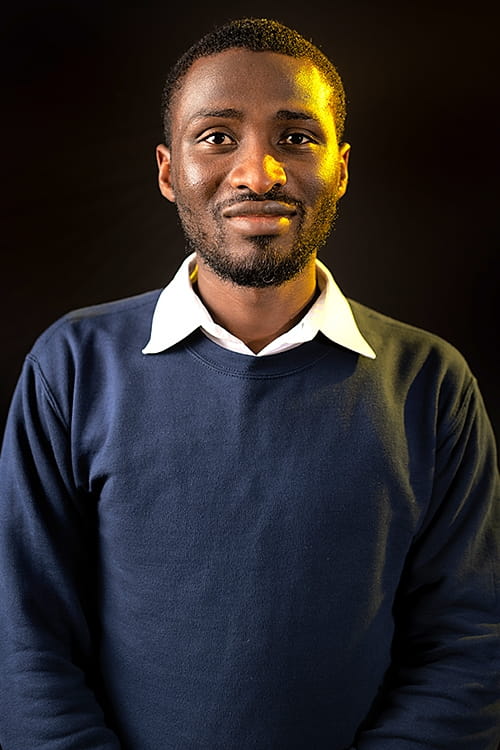
Azeez Alade, PhD student, epidemiology
Seeks DNA causes of clefts
“In addition to his excellent track record in research, Azeez has also been involved in mentorship and advocacy, especially for underrepresented groups…this nomination is not only to acknowledge the excellent work he has done and is currently doing in mentorship, advocacy and research but also to inspire him and others to do more.” -Precious de-Winton Cummings, PhD student, epidemiology
Hometown: Ibadan, Oyo state, Nigeria
Faculty mentor/advisor: Azeez Butali, DDS, PhD, associate professor, pathology, radiology, and medicine, Carver College of Medicine
What is your degree program and expected graduate date? Epidemiology – 2023
Please describe your research: My research focuses on identifying the genetic and genomics causes of orofacial clefts, a gap in the upper lip and or roof of the mouth of newborn babies. I work with the African population, an ancestral population to modern humans, which has been underrepresented in genetic studies. My research leverages this population to provide new insight into the development of the face and the mechanism underlying orofacial cleft formation.
In simple terms, why does this research matter? Orofacial clefts are the most common birth defect of the head and neck region. They cause significant medical, psychological, educational, and financial problems. Thus, there is a critical need to identify effective interventions, which will require more in-depth knowledge of the underlying genetics. The knowledge gained from our study will facilitate risk prediction, genetic counseling and, ultimately, prevention.
How soon after starting at the University of Iowa were you able to participate in research? Before arriving in Iowa, I identified the lab doing the research of my interest. Thus, I started my research right from the second week I arrived in Iowa.
How has being involved in research made you more successful at the University of Iowa? PhD requires me to complete a dissertation that will be my research outcome. Conducting research allows me to apply concepts taught in class, increasing my understanding of the courses.
What are your career goals and/or plans after graduation? My long-term career goal is to become an independent dentist-scientist who utilizes multidisciplinary approaches to investigate the genetic underpinnings of orofacial diseases.
Banner location: not on display—
